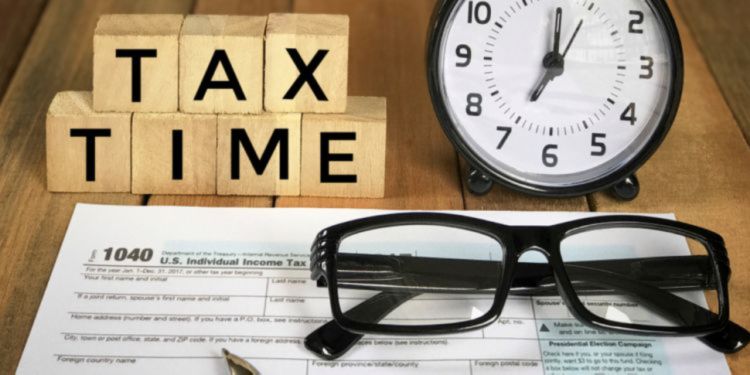
Thailand is not a tax haven. In Thailand, there are two main types of taxpayers — residents and non-residents. A resident is a person who resides in Thailand for more than 180 days in a calendar year, and a resident is liable to pay tax on any income earned in Thailand, as well as on a portion of any income that is brought into Thailand from overseas. However, a non-resident is only subject to tax on income that is earned in Thailand.
Will you pay taxes in Thailand as an expat?
Income tax in Thailand is based on assessable income, which covers employment salary, professional fees, interests, dividends, and capital gains on securities, royalties, property rental, and income from consulting or contracting. Basically, most forms of earnings over THB 150,000 per year are taxable in Thailand.
If you are an expat working in Thailand, you probably already have a tax ID. This means that you will be liable to pay income tax in Thailand.
A tax identification number in Thailand is a small card with your tax ID on it. To apply for a tax ID, you need to go to the tax office and present the following documents:
- your passport and valid visa/visa exemption;
- a valid lease agreement for 6 months or more;
- proof that you have resided in Thailand for a minimum of 180 days out of the last 365 days (entry stamps, bank receipts, etc.).
If you haven't spent all 180 out of 365 days in Thailand, you may still be able (and, in some cases, required) to obtain a TIN. This typically happens when you have potential tax liability in the country. In this case, you will need to present other documentation to prove your tax residence: proof of investment, papers showing intent to purchase property, etc.
On the other hand, working remotely from Thailand is not as straightforward.
As mentioned above, the Thai tax department will first determine whether you are a tax resident.
Tax residents are people who reside in Thailand for 180 days or more during a calendar year. Non-residents are those who spend under 180 days in the country during one calendar year.
By law, residents are required to pay personal income tax on the income they earn in Thailand and a portion of the income they earn abroad. Non-residents, on the other hand, will only need to pay tax on the income they earn in Thailand.
In summary, digital nomads or remote workers who spend less than 6 months in Thailand and work for employers overseas will not need to pay taxes in Thailand. Keep in mind this is not legal without a Thai work permit and the right visa.
However, if you are looking to generate income from Thailand, you will need to first make sure you have all the needed paperwork in place.
Tax obligations for expats working in Thailand
To be able to work in Thailand legally, you will first need to obtain a Non-Immigrant Visa, followed by a work permit. There are strict penalties, including fines or imprisonment, for foreigners who take up employment without a work permit, so don't be tempted to go down this route.
Before getting a work visa in Thailand, you will need to apply for a Non-Immigrant visa at the Royal Thai Embassy or Royal Thai Consulate-General in your home country or your country of residence. You will need to do this before your travels to Thailand. In some cases, however, you can apply for a work permit directly via the One Stop Service Centre for Visas and Work Permits in Bangkok.
Once you have applied for and received the Non-immigrant visa, you can travel to Thailand and apply for a work permit. The work permit process takes around seven business days — however, this may vary depending on the specifics of your situation. Your work permit application will be processed by the Ministry of Labor.
Note that to apply for a work permit in Thailand, you first need to secure a valid job offer from an employer who is capable of sponsoring your visa application. It's important that you make sure your employer is capable of supplying you with the necessary documents — you should ask the HR department or your supervisor directly whether they will provide a work visa for you.
Important:
Note that you may be receiving job offers in Thailand that do not include a work visa. These jobs may include English teaching, working in hospitality, media, fitness, and so on. While working unofficially can indeed be a source of income for expats in Thailand, be warned that engaging in these activities is at your own risk. Working without proper documentation in Thailand can result in heavy fines and even deportation.
The employer sponsoring your work visa should be able to provide the following:
- company documentation and statement of objective;
- list of shareholders;
- VAT application;
- financial statements;
- copies of the director's/owner's passport and work permit;
- office location;
- employment contract detailing your position and salary.
Naturally, this is not an exhaustive list of the paperwork required. Make sure to check with the Ministry of Labor regarding the documents your employer should provide.
Social security tax in Thailand
Note that when you are legally employed in Thailand, you will also need to make social security contributions. In the Thai social security system, the employee contributes 5% of the first THB 15,000 of their income. The employer will then match that contribution. Finally, the Thai government will also add a 2.5% contribution to your social insurance.
Some countries have a social security agreement with Thailand. In this case, their residents won't have to pay contributions to both social security systems. However, if your country of residence doesn't have the necessary agreements in place with Thailand, you may need to pay social security contributions in both countries.
How to pay taxes in Thailand as an expat
The Thai tax year runs from January 1st to December 31st. It is a taxpayer's duty to register for a tax identification number, which you should apply for at your nearest revenue office within 60 days of receiving your first salary by submitting your passport and proof of address along with the application form. You will then be required to file your income tax returns and pay tax to the revenue department by March 31st for each previous tax year, and there are penalties if you delay the process or make a late payment. As a taxpayer, you must also notify the revenue department officers of any changes in circumstance, and you may be expected to provide additional documents or information at any point and comply with any summons.
If you fail to pay the required sum, some of your assets could be seized and sold without a court decision. The money raised from the sale will pay any overdue tax arrears.
Foreigners should note that when renewing work permits, they will need to show a copy of their tax submission for the previous year. Some companies handle these for their employees, so if you are working, it is better to ask Thai HR how to handle this tax, whether you will pay it or they will handle it for you.
Tax rates and exemptions in Thailand
Thailand uses a progressive income tax system. This means that how much you pay in taxes depends on how much you earn. The tax-paying threshold in the country is 150,000 Baht. So, if you are making less than this amount, you will be exempt from paying taxes in Thailand. However, make sure to check whether you are still required to pay taxes on your Thai income in your home country.
If you earn over 150,000 Baht, you will need to pay tax in Thailand. Tax rates start at 5% and go up to 35% for earnings over five million Baht.
Here are Thailand's current income tax rates (as of 2023):
- expats earning less than 150,000 Baht are exempt from income tax;
- expats earning more than 150,000 Baht but less than 300,000 Baht will be taxed at 5%;
- expats earning between 300,000 Baht and 500,000 Baht are taxed at 10%;
- expats making between 500,000 Baht and 750,000 Baht are taxed at 15%;
- expats making from 750,000 Baht to 1,000,000 Baht are taxed at 20%;
- expats making between one million and two million Baht are taxed at 25%;
- expats making up to five million Baht are taxed at 30%;
- finally, those making over five million Baht are taxed at the rate of 35%.
Certain deductions and tax exemptions are allowed when calculating your taxable income, so it is advisable to confer with an accountant in Thailand if you aren't on PAYE with a company and are required to file your own returns. Tax returns also need to be reported in Thai, so this will help you to overcome the language barrier.
Tax collection is very common all over the world. So, if you are planning to move to another country, make sure to know its taxation process before moving so you can make a better decision.
2024 changes to tax liabilities on income transferred into Thailand
In 2023, the Thai government announced that starting in 2024, all money transferred into Thailand will be subject to tax if you're a tax resident in Thailand, whether that money was already taxed in your home country or not.
However, if you come from a country that has a tax treaty with Thailand (such as the United States), you won't have to pay taxes on the money you transfer into the country if you can prove it was already taxed back home. So, it's important to keep all tax records moving forward.
If you come from a country that doesn't have a tax treaty with Thailand, you should be prepared to pay taxes on any income you transfer into Thailand. This stands true even if that income is from savings that were already taxed years ago.
How to file for taxes in Thailand as an expat
In most cases, if you are employed in Thailand, your employer will file income taxes on your behalf. However, if (for any reason) you need to file for taxes on your own, things can get a bit complicated.
The main problem for expats paying taxes in Thailand is that all tax returns must be filed in Thai. And if your command of the Thai language doesn't allow you to fill out tax papers, you will probably need to hire a Thai-speaking accountant to assist you.
You can file your taxes in person or on the Revenue Department's website. Unfortunately, the Revenue Department's page is also only available in Thai.
Some expats choose to use accounting agencies or individual licensed accountants to manage their taxes. This can be a good way to keep your troubles to a minimum and avoid paperwork hassle. With that, you should pay due diligence when searching for an accountant to work with. Make sure they are licensed and have the necessary qualifications to handle taxes for expats.
Overall, figuring out your taxes in Thailand shouldn't be too complicated. As the country is home to many foreigners who live here full-time, you will always have the option to ask a fellow expat for advice about handling tax matters.
One important thing to keep in mind, however, is taxes in your home country. If your country of permanent residence doesn't have taxation agreements with Thailand, you will need to check with your home tax office about the procedure of paying your taxes while living and working abroad.
Learn more about money matters in Thailand: here's how to open a bank account in Thailand as an expat.
Useful links:
We do our best to provide accurate and up to date information. However, if you have noticed any inaccuracies in this article, please let us know in the comments section below.












Comments
2Sorry, I need to correct my statement. I mean less than 120,000 baht.
Do I still need to file a tax return in Thailand if my earning for year 2021 is less than 150,000 baht?